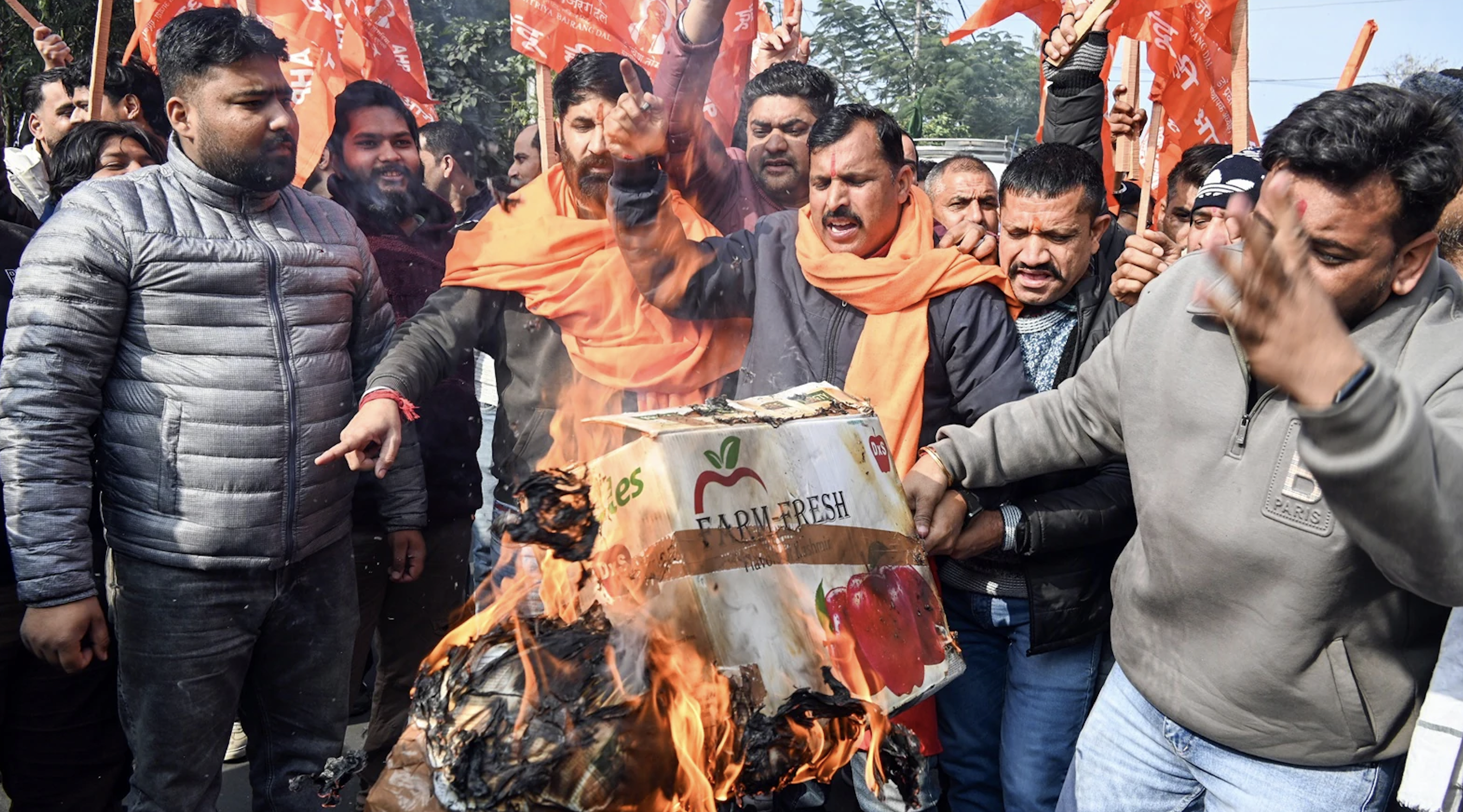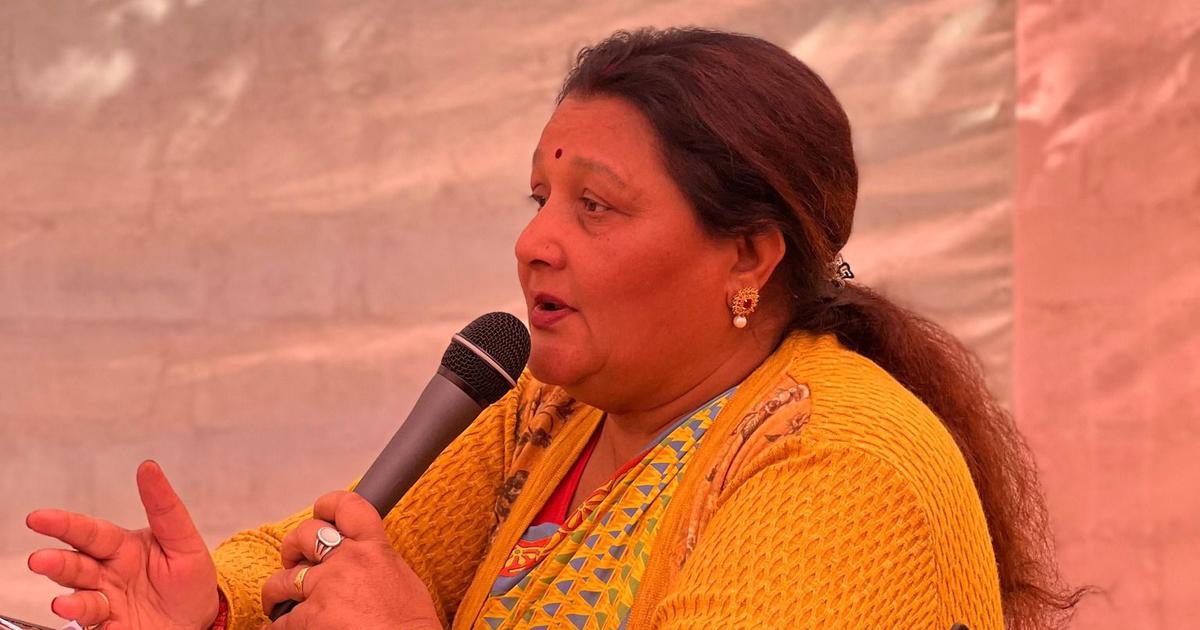
Azad Essa / Middle East Eye
The company tasked with collecting and facilitating applications from prospective Hajj pilgrims living in western countries has at least one investor with close ties to India’s government, Middle East Eye can reveal.
Last week, Saudi authorities announced that would-be Hajj pilgrims from Australia, Europe and the United States would need to apply for visas via the government portal Motawif, a move intended to crack down on what it called “fake” travel agencies.
Following the new process, those selected would win their place through an “automated lottery” system, after which they could book and purchase their transport and accommodation directly through the Saudi government portal.
Saudi authorities have issued few statements about why the decision was being implemented so close to this year’s Hajj, but an MEE investigation can reveal that an individual involved in helping facilitate millions of dollars’ worth of investments into Traveazy, the Dubai-based company that has been exclusively contracted to process the western applications through Motawif, has ties to Indian Prime Minister Narendra Modi and his Bharatiya Janata Party (BJP).
Prashant Prakash, vice-president and partner at venture capital firm Accel India, has served on India’s National Startup Advisory Council since 2020, and in 2021 became a policy and strategy adviser to Basavaraj Bommai, the chief minister of the BJP run government in Karnataka and a key Modi ally.
According to Accel, it was Prakash who led the venture capital firm into partnering with two other operations when they collectively invested $7m in Traveazy in 2016, as the Indian-owned company began to build its Holidayme subsidiary, and, later in 2018, Umrahme, a company run by Mohammed MS bin Mahfouz.
In 2018, Accel was part of a consortium of five partners who invested a further $16m into Traveazy, which was co-founded by Indian nationals Geet Bhalla and Digvijay Pratap.
MEE reached out to Bhalla, the CEO of Traveazy, for comment, but did not receive a response by time of publication.
According to Forbes, Umrahme is now “one of only three companies authorised by the Ministry of Hajj & Umrah to sell Umrah products to global travel agents. By 2020, it was ranked fifth in Forbes’ list of 50 of the most funded start-ups in the Middle East”.
‘Outrageous and dangerous’
Several Indian activists said the revelations were concerning. Nabiya Khan, based in the capital, New Delhi, told MEE that Saudi Arabia’s decision to outsource the application process to a company with investor links to the BJP was “outrageous” and “dangerous”.
Khan said that the BJP-led Karnataka government was at the centre of several anti-Muslim policies, including restrictions on the hijab and adhan (dawn prayer).
“Muslims in Karnataka have been under continuous attack under the BJP. We have also seen Karnataka’s chief minister, Basavaraj Bommai, encouraging right-wing interference of inter-faith marriages and harassment of inter-faith couples, where Muslim men are a site of direct violence,” she said.
“The personal data of those Muslims who applied through the portal could easily end up in the wrong hands,” Khan said.
“It is unfortunate that Muslim nations are entrusting such sensitive information and money to people whose money will ultimately abet persecution of Muslims in India,” added Khan.
“On the one hand, KSA [Saudi Arabia] condemns controversial remarks about the Prophet Muhammad by BJP leaders, and on the other hand they are extending business with such organisations. Are they actually clueless or just don’t care about Muslims when the BJP’s anti-Muslim agenda is so clear for all to see?”
Syed Abdahu Kashaf, a social and civil rights activist from Hyderabad, told MEE that the allegations meant Saudi Arabia had effectively “invited people who have no right to be involved in a very sacred space for Muslims”.
Neither Saudi Arabia’s Ministry of Hajj and Umrah nor the Saudi consulate in New York City replied to requests for comment.
The southern Indian state of Karnataka is considered the start-up capital of India, and Prakash is an industry stalwart.
He co-founded Accel’s India branch in 2008 and is credited for having helped facilitate the start-up ecosystem involving the government and private sector in Karnataka.
In 2020, he praised Modi’s use of technology in India’s Covid-19 response, and hailed the Indian leader’s “progressive policies and steadfast commitment” to India’s technology startups.
India’s Covid-19 response has been considered a failure by many experts, with the WHO estimating around 4.7 million Indians may have died during the pandemic so far. The Indian government has rejected the WHO’s toll.
In December 2021, Prakash was one of several venture capitalists invited to a round-table discussion of start-ups in the country, held at Modi’s residence. Modi was dubbed the “startup prime minister” and lauded by the tech entrepreneurs, while his official YouTube channel posted a clip of Prakash hailing Modi for his work on agricultural startups.
“It was a great opportunity to interact with the prime minister. I presented the idea of this being the moment to encourage agri-startups. He [Modi] clearly saw the same vision,” Prakash said.
MEE reached out to Prakash for comment but did not receive a response by time of publication.
Digital authoritarianism
Suchitra Vijayan, executive director of The Polis Project in New York City, told MEE the tech industry was an example of how anti-Muslim hatred could spill over borders.
Accel is a long-time investor in Israeli start-ups, reportedly investing more than $350m into the country between 2002-2016.
“One of the dimensions of authoritarianism is surveillance capitalism and how that feeds into the ways in which every person is completely detailed and documented,” Vijayan said.
“I think digital authoritarianism is closely linked to surveillance capitalism. The idea is to constantly survey the population and document their activities and have control over everything they do.
“The Hindutva ideology and the rabid hatred that they have for Muslims and others is a global phenomenon. Bigotry is big business and there are people who make money from this bigotry and violence,” she added.
Collaboration between India and the UAE has accelerated in recent years due to deepening geostrategic ties as well as economic and commercial relations.
In January, India and the UAE signed a memorandum of understanding to launch the “India-UAE Start-Up Corridor”, with the stated intention of building a start-up ecosystem between the two countries.
Two months later, Accel announced it would be investing $650m in the Indian start-up scene.
On Tuesday, the United States announced that it will hold a four-nation summit with India, Israel and the UAE during President Joe Biden’s visit to the region next month.
A White House official described the meeting as a “unique engagement” and said the leaders will discuss security and “areas of cooperation across hemispheres where UAE and Israel serve as important innovation hubs.”
Since Saudi Arabia announced its changes to the Hajj application process, there have been several mishaps for western pilgrims.
On Friday, applicants said they were being bombarded with spam after registering on the site, prompting concerns about privacy and data theft – especially since the company does not specify its data protection policies on its website.
On Monday, Motawif’s site experienced several technical difficulties receiving applications, eventually crashing as millions descended upon the site.
This article first appeared on middleeasteye.net






